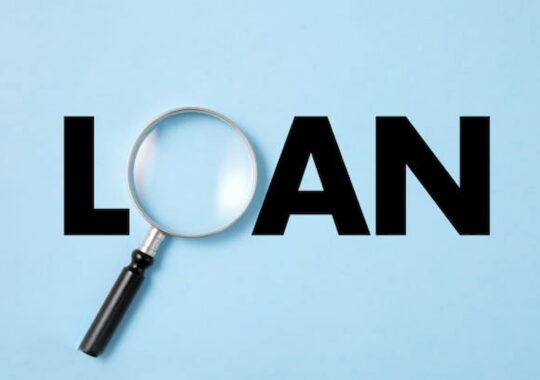Looking for financial assistance through small loans? This guide provides all the essential steps, tips, and insights to help you apply confidently and quickly.
In times of financial need, small loans offer a quick and accessible solution to cover various expenses. Small loans can provide immediate relief, whether it’s an unexpected medical bill, a car repair, or simply bridging the gap until your next paycheck. These loans, typically ranging from £500 to £5,000, are designed to be less burdensome than larger loans, often with quicker approval processes and fewer requirements.
However, applying for small loans can seem overwhelming if you need to familiarise yourself with the process. With the proper guidance and knowledge, securing a small loan can be a straightforward experience. In this article, we will guide you through the process, from understanding small loans to tips on improving your chances of approval. We will also explore the types of small loans available and the factors that can affect your application.
Understanding Small Loans: What You Need to Know
Before diving into the application process, it’s essential to understand what small loans are and how they work. These loans typically have lower amounts than traditional personal loans and are intended for short-term financial needs. They are often unsecured, meaning you don’t need to provide collateral.
Key Features of Small Loans
- Loan Amount: Generally between £500 and £5,000.
- Short-Term Repayment: Small loans often have repayment periods ranging from a few weeks to a few months.
- Unsecured: No collateral is required for most small loans, though this can vary.
- Quick Approval: Many lenders offer fast approval processes, sometimes within 24 to 48 hours.
- Higher Interest Rates: Due to the convenience and unsecured nature, interest rates can be higher than traditional loans.
Small loans are perfect for those who need immediate cash for emergency expenses but don’t want the hassle of lengthy loan processes.
Types of Small Loans You Can Apply For
Not all small loans are the same, and knowing the difference between the available options will help you choose the one best suited to your needs.
Personal Loans
Personal loans are typically unsecured, allowing borrowers to use the funds for virtually any purpose. Banks, credit unions, and online lenders usually offer them. Personal loans for small amounts are generally repaid over a few months and can be a reliable option for those with a decent credit score.
Payday Loans
Payday loans are short-term loans that provide quick cash to be repaid with your next paycheck. While the process is fast, payday loans come with high interest rates and fees. These loans should be used with care since, if not paid back on time, they could start a debt spiral.
Installment Loans
Installment loans are typically longer-term loans, but options are available for smaller amounts. These loans are paid back in fixed monthly instalments, making them more predictable and manageable. Instalment loans can be a good option for more considerable expenses but still fit within “small loans.”
Credit Card Cash Advances
If you already have a credit card, a cash advance could be an option for obtaining a small loan. However, credit card advances often come with high fees and interest rates, so assessing whether this option is cost-effective is essential.
How to Apply for Small Loans: A Step-by-Step Guide
Applying for small loans is often straightforward, but there are a few steps to follow to ensure a smooth process. Let’s break it down.
Step 1: Assess Your Financial Needs
Before applying for a small loan, clearly understand how much you need to borrow. Small loans are typically for emergencies, so having a specific amount in mind will help streamline the process. For example, if you need to pay for an urgent car repair, you may need a loan of £1,500.
Step 2: Check Your Credit Score
Your credit score significantly determines your eligibility for a small loan and the interest rate you’ll receive. Most lenders look for a minimum credit score of 600 or higher, though some may accept lower scores, especially for payday or no-credit-check loans.
If your credit score is lower than the lender’s requirement, consider improving it before applying. Even minor improvements can help you secure better loan terms.
Step 3: Research Lenders
Different lenders offer various small loans, so shopping for the best rates and terms is essential. Some familiar sources of small loans include:
- Banks and Credit Unions: These institutions typically offer low-interest loans but may have stricter requirements.
- Online Lenders: Online lenders often provide more flexible terms and quicker approval times.
- Peer-to-Peer Lending: Some online platforms allow individuals to lend to other individuals, often with more lenient terms than traditional financial institutions.
Step 4: Gather Required Documentation
Most lenders require essential documentation, such as proof of income, employment, and identity. Having these documents ready will speed up the process and make your application more attractive to lenders.
Step 5: Apply and Wait for Approval
After you submit your application, the lender will review your financial profile and determine whether to approve the loan. If approved, you will typically receive your funds within a few days, though some online lenders offer same-day approval.
Factors That Affect Your Small Loan Application
Various factors can impact your approval odds when applying for small loans. Understanding these can help you avoid unnecessary setbacks.
Credit Score
Your credit score remains one of the most important factors when applying for small loans. Lenders use this score to assess the risk of lending to you. Higher credit scores (above 700) increase your chances of securing loans with favourable terms.
Income and Employment
Lenders want to ensure you have a stable income and can repay the loan. Having a steady job or other verifiable sources of income increases your chances of approval.
Debt-to-Income Ratio (DTI)
Your DTI ratio measures your monthly debt payments relative to your income. A high DTI ratio may indicate that you need to be more over-leveraged, making it harder to secure a loan.
Collateral
While most small loans are unsecured, some lenders may require collateral for larger loans or if your credit history could be better. Offering collateral can lower the lender’s risk and improve your approval chances.
Pros and Cons of Small Loans
Before applying for a small loan, weighing the benefits and risks is essential. Here’s a quick look at the pros and cons.
Pros
- Quick Access to Cash: Small loans offer fast approval and funding for emergencies.
- Flexible Use: Most small loans can be used for anything, from medical bills to home repairs.
- Short-Term Commitment: With smaller loan amounts and shorter repayment periods, small loans are easier to manage.
- No Collateral Required: Many small loans are unsecured, meaning you don’t have to risk assets like your car or house.
Cons
- High Interest Rates: The interest rates can be steep, especially with payday loans and credit card advances.
- Risk of Debt: Borrowers who take out payday loans without a clear plan to repay them may end up in a debt cycle.
- Fees: Some small loans come with additional fees, which can increase the overall cost of the loan.
Tips to Improve Your Chances of Approval for Small Loans
To boost your chances of securing a small loan, consider the following strategies:
Improve Your Credit Score
Your prospects of loan approval will be much improved even with a few credit score enhancements such as debt reduction or credit report error correction.
Provide Accurate and Complete Documentation
Ensure that all documents are current and complete. Lenders will likely reject incomplete applications, so double-check everything before submission.
Apply for the Right Loan Amount
Borrow only what you need. Asking for more than necessary may make lenders hesitant, especially if your income is limited.
Consider a Co-Signer
If your credit could be better, a co-signer with better credit can help improve your chances of approval and may lower your interest rate.
Final Thoughts
Small loans can provide an essential financial lifeline when you need cash quickly for emergencies or unexpected expenses. By understanding the types of small loans, the application process, and the factors that influence approval, you can confidently approach the borrowing process. Always remember to compare lenders, check your credit score, and borrow responsibly to avoid falling into a cycle of debt.
Whether you opt for a personal loan, payday loan, or installment loan, small loans can be helpful tools when used wisely. The key is to make informed decisions and choose the loan that best suits your financial situation.





